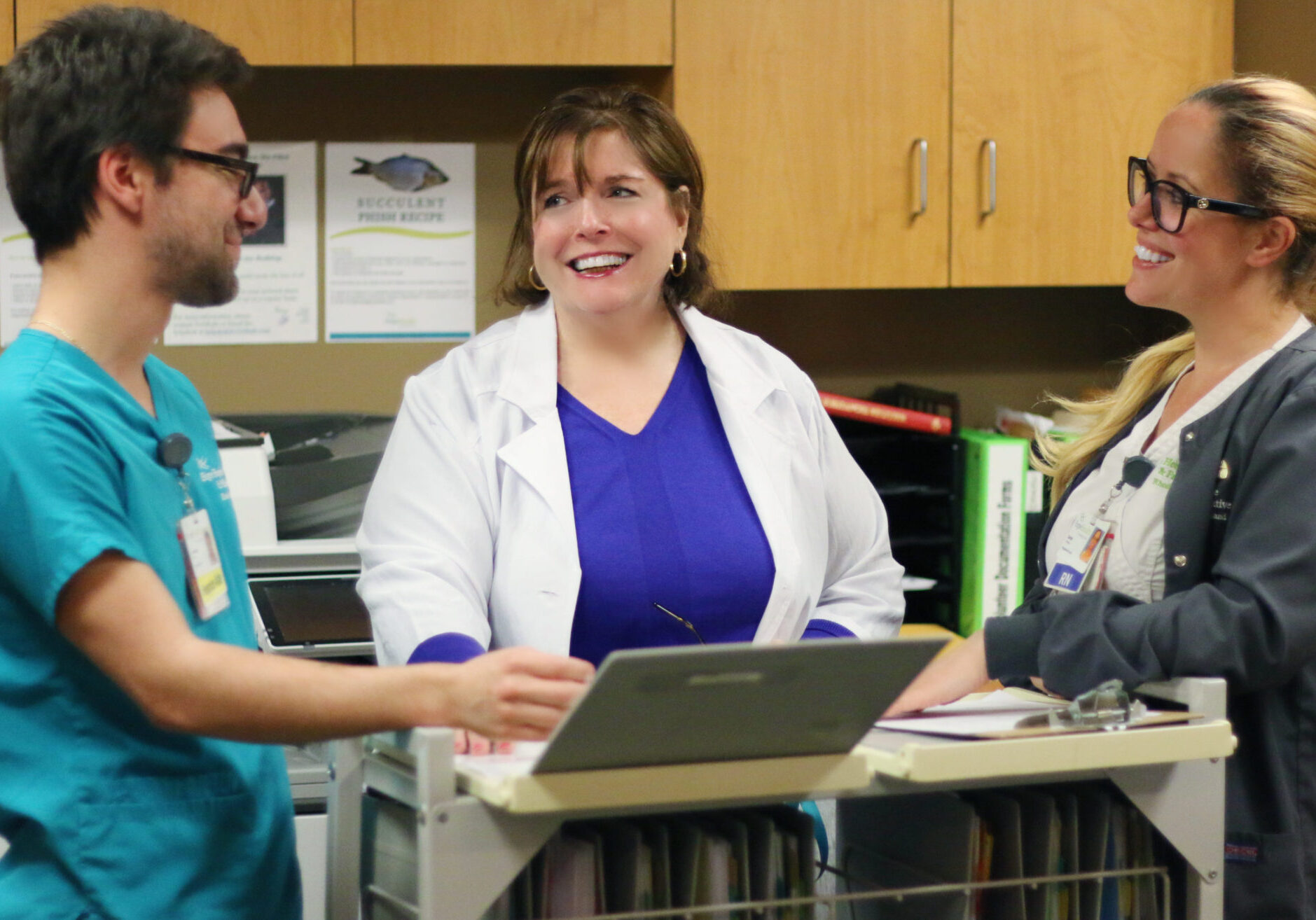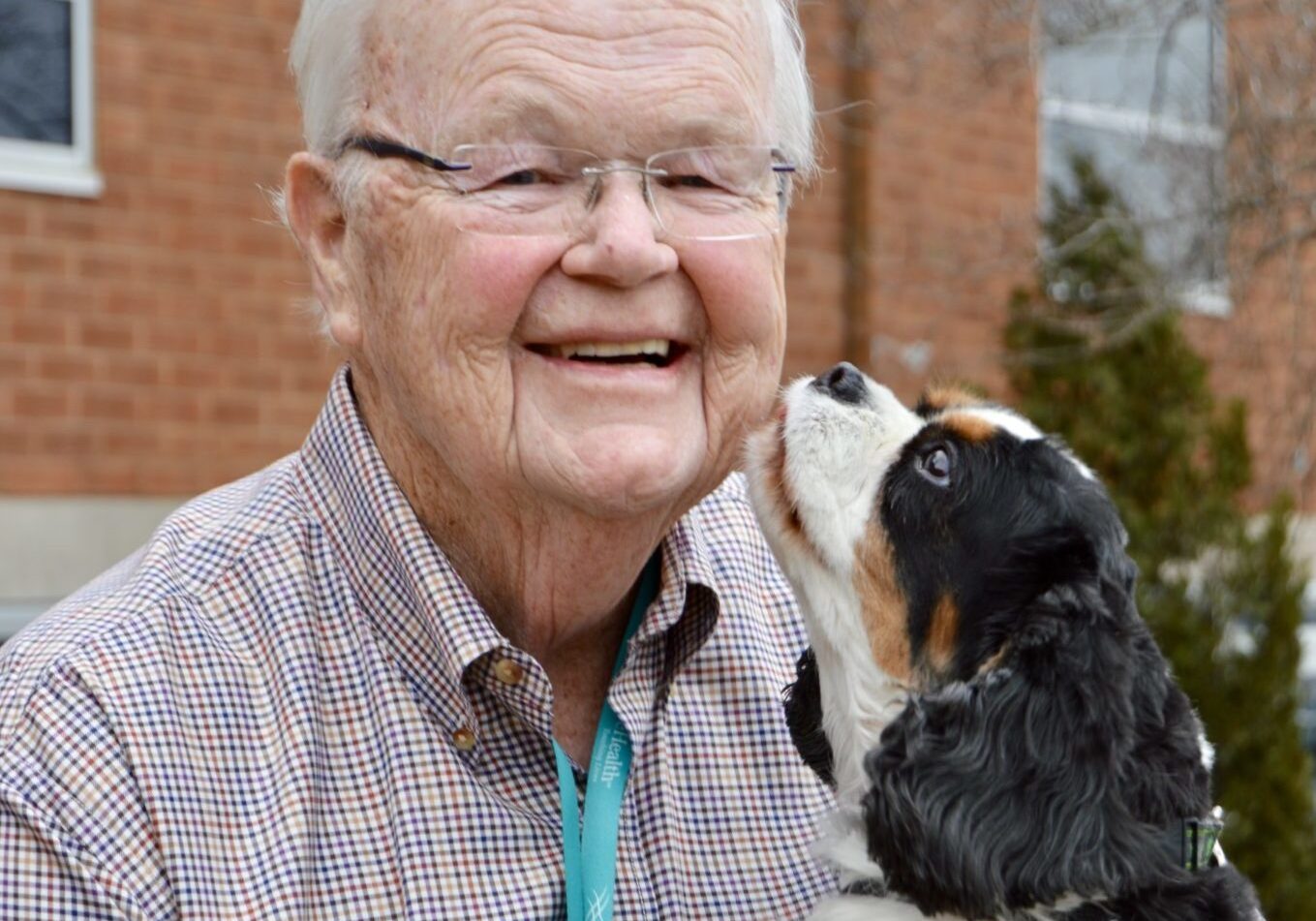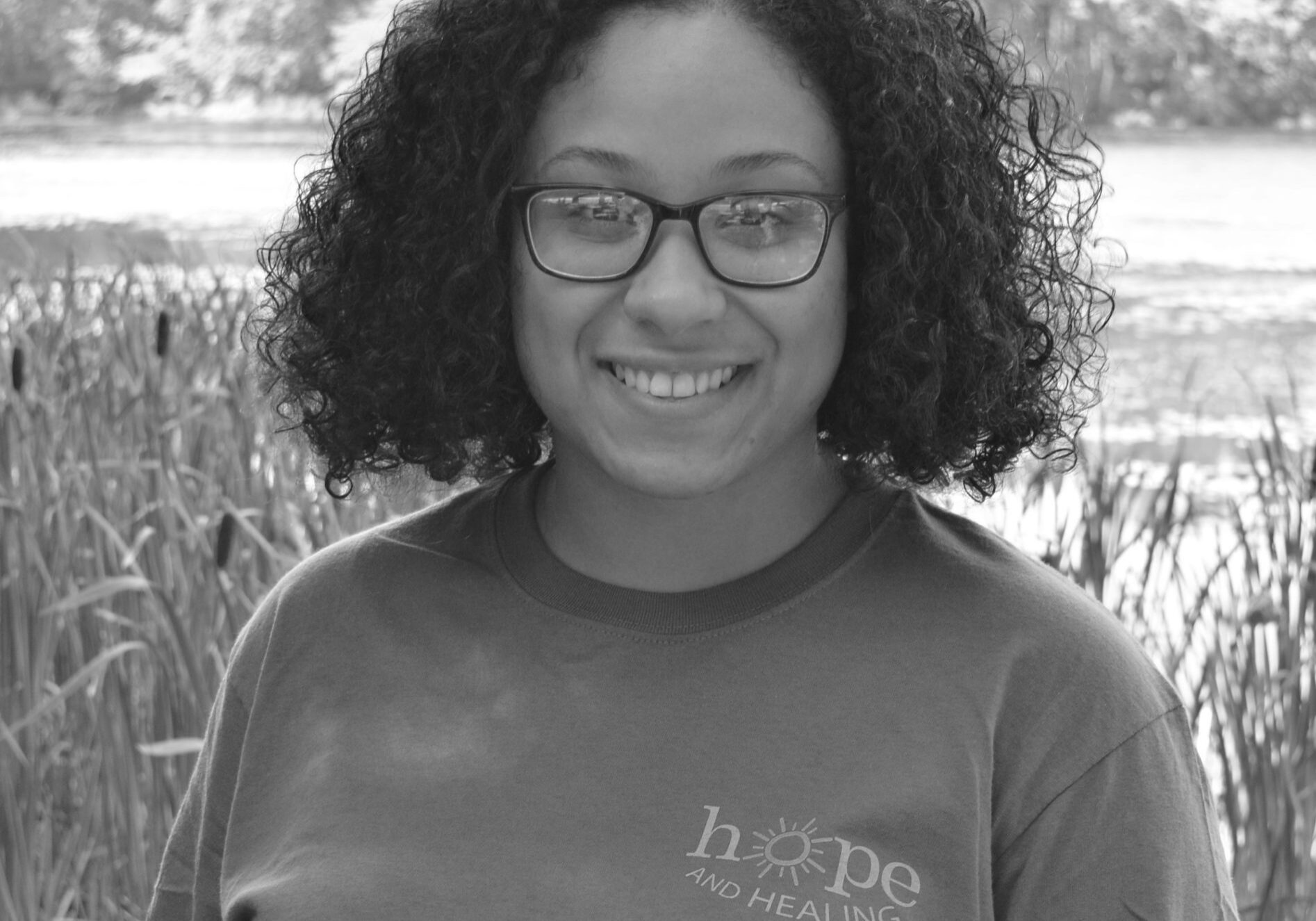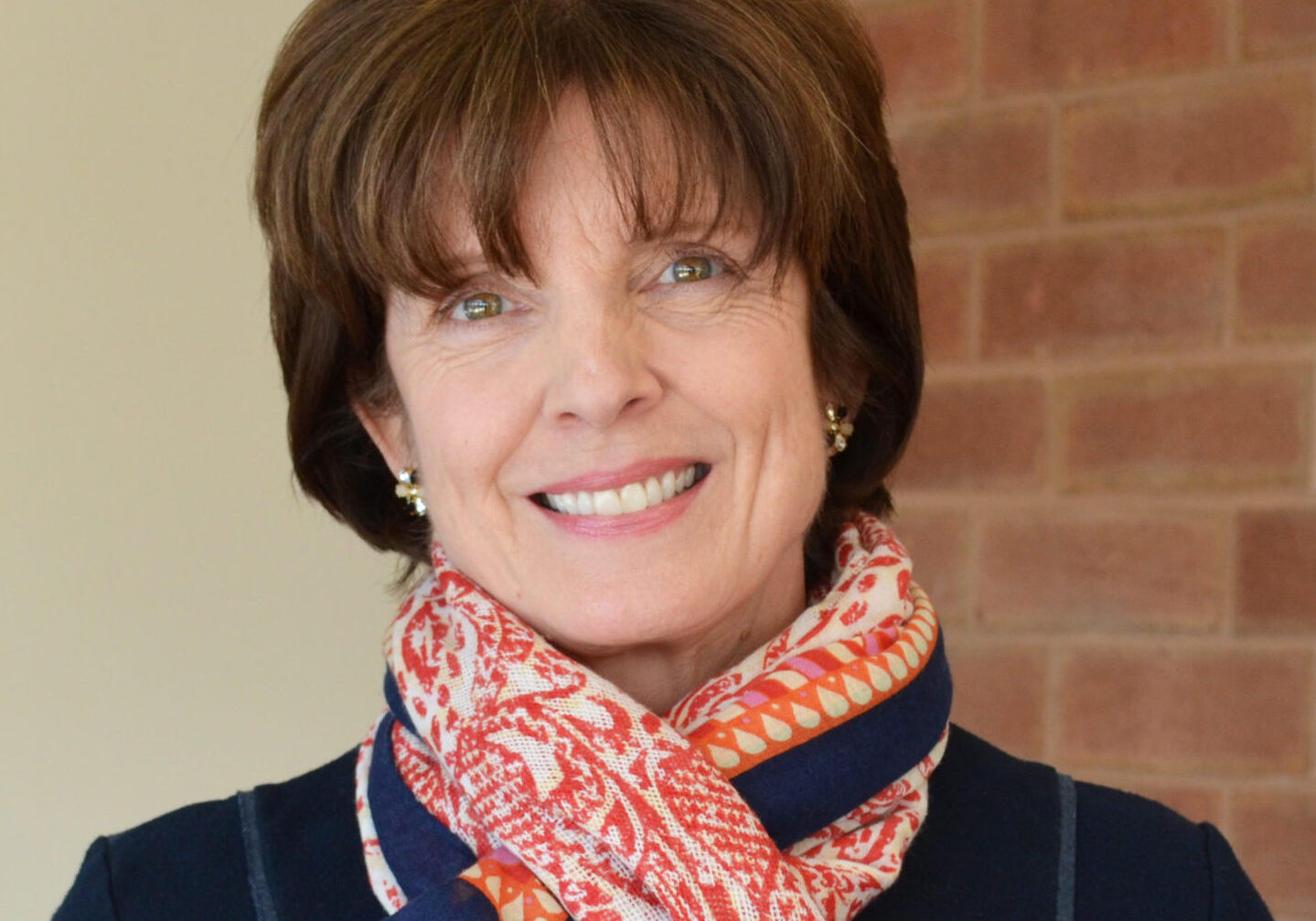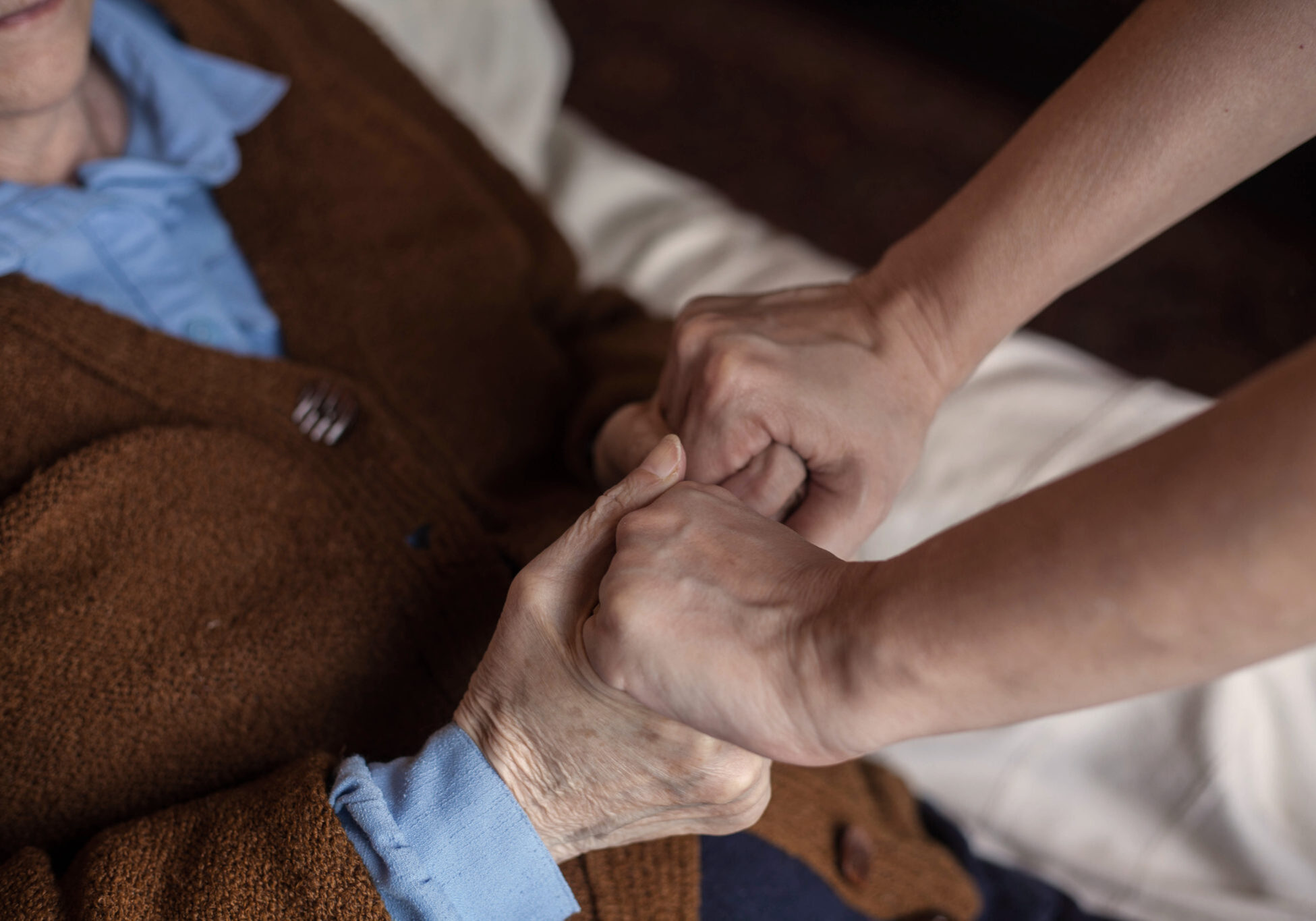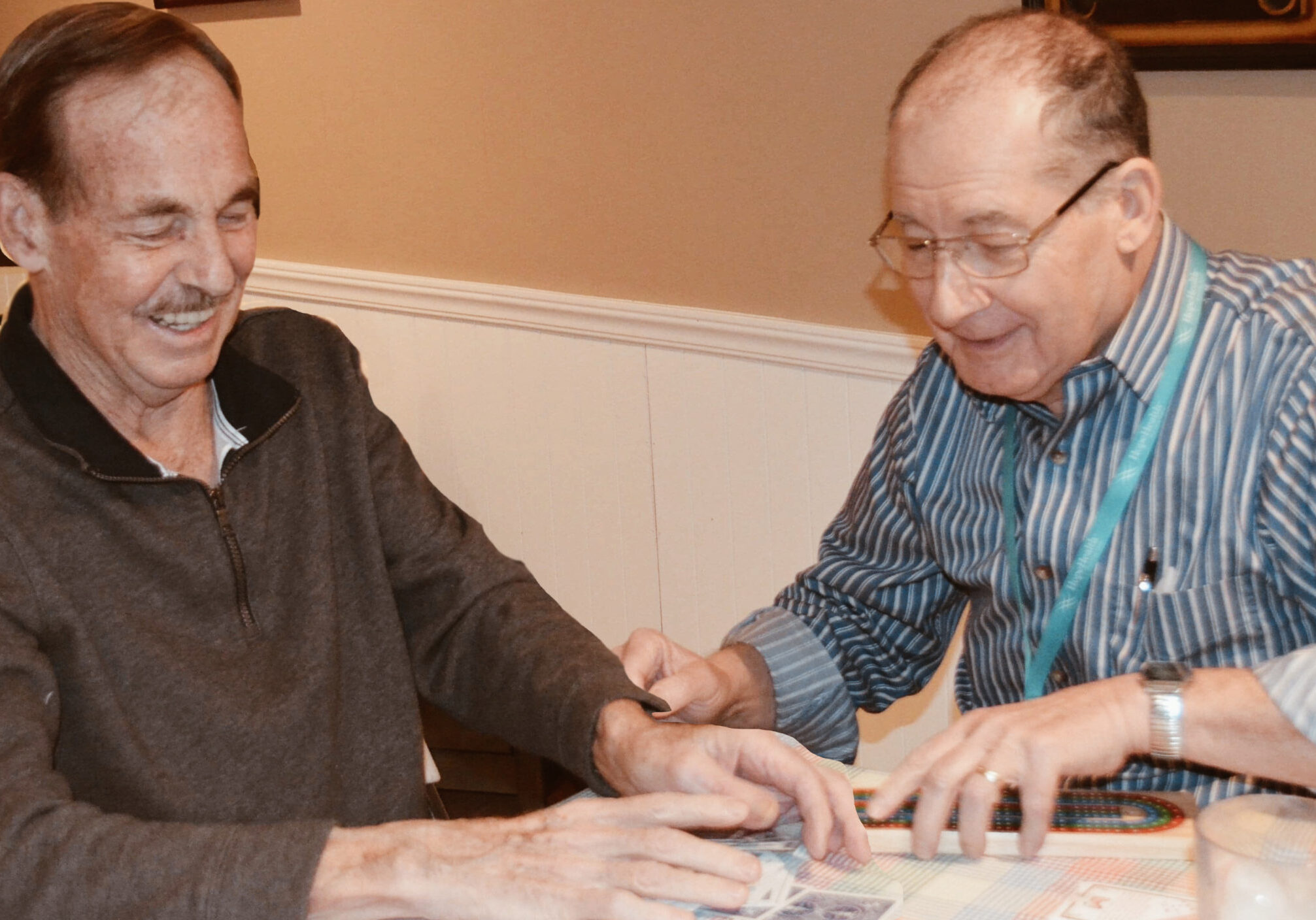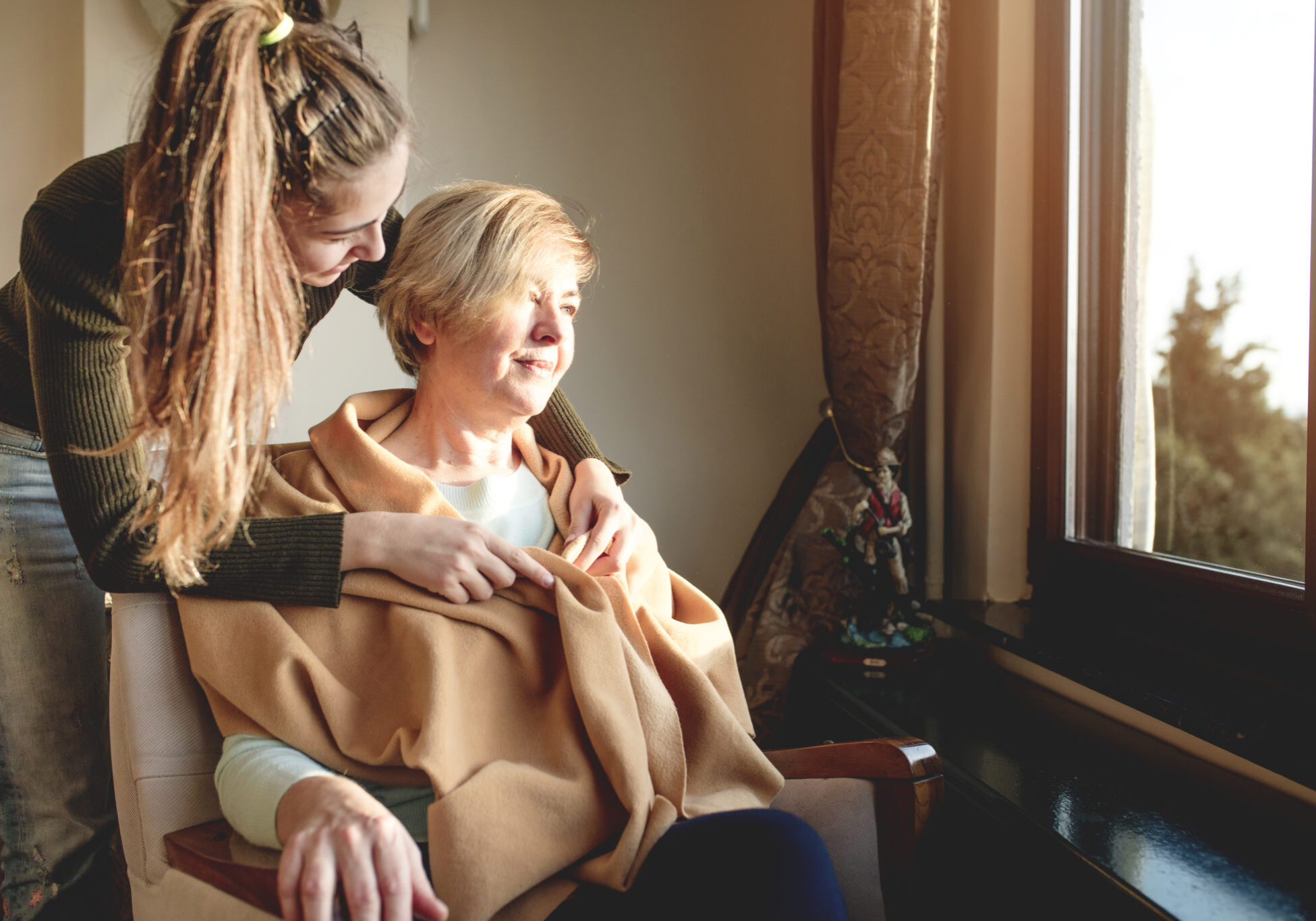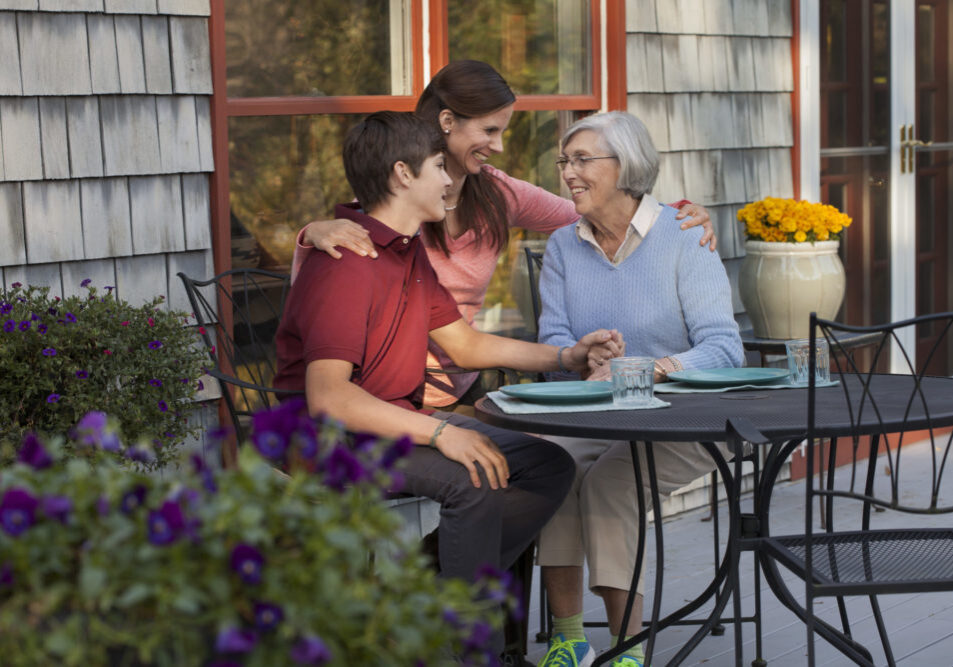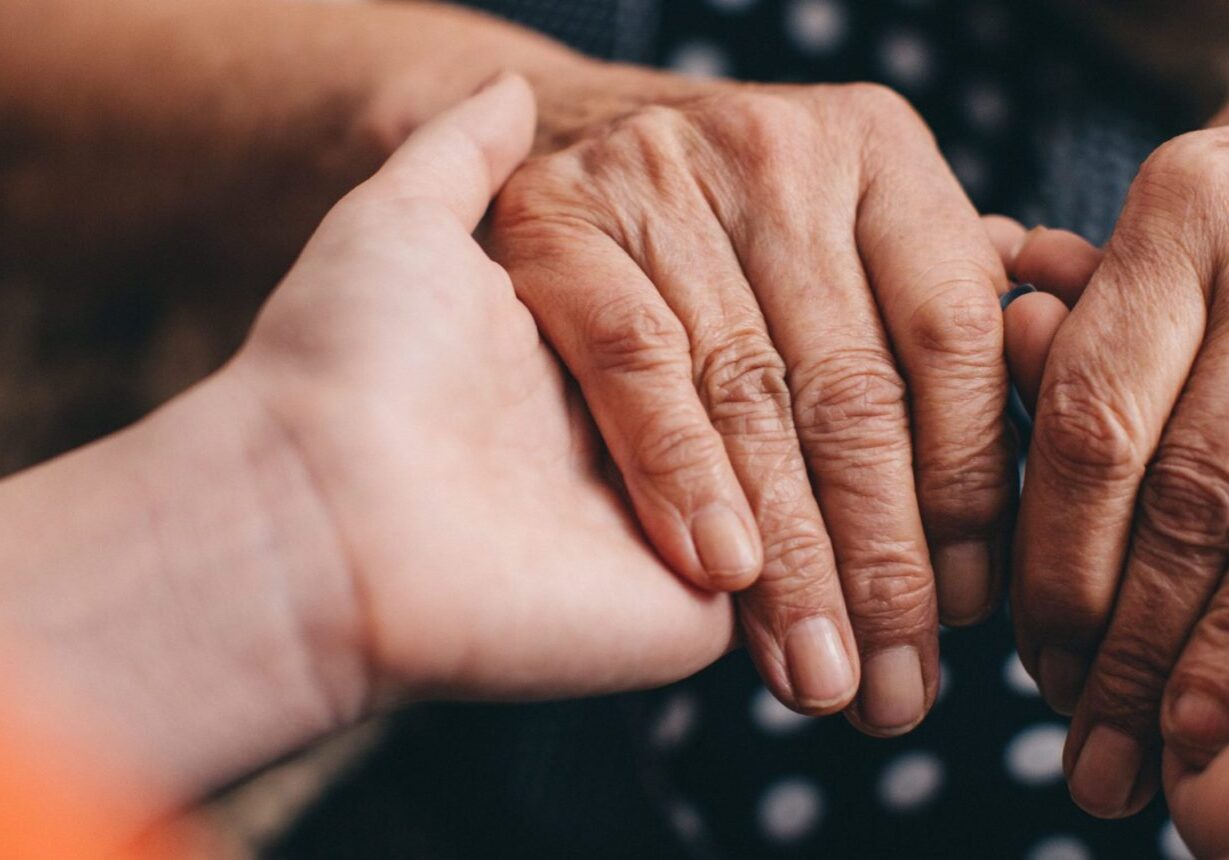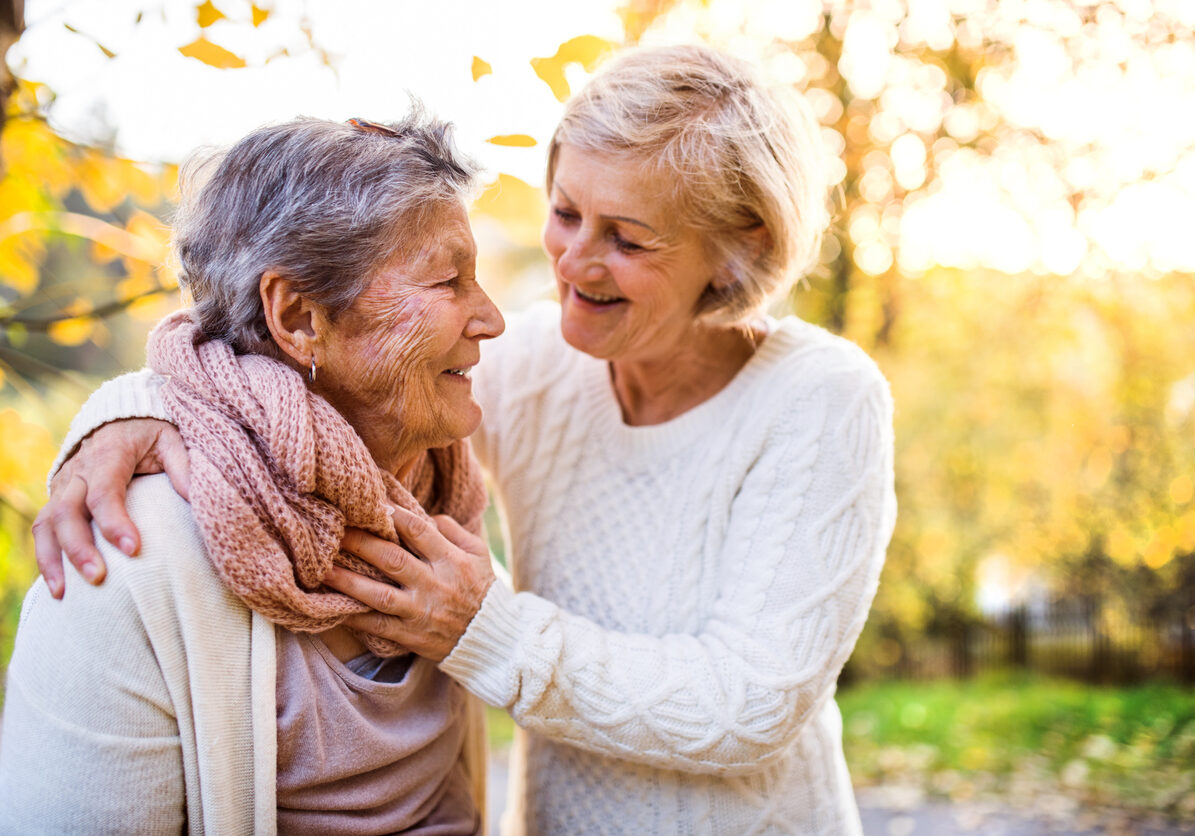HopeHealth Blog
Stories of courage, compassion, hope, healing and support from our experts, caregivers, patients, families and loved ones.
- All
- Grief Support
- HopeHealth Blog
- Hospice Care
- Palliative Care
Grieving before a death: Anticipatory grief and dementia caregivers
Anticipatory grief is the mourning you feel when someone you love has a life-limiting illness. Learn the symptoms and how to cope for National Alzheimer’s and Brain Awareness Month.
“Why I love being a nurse” from home care to hospice
At HopeHealth, our home care and hospice nurses play essential roles in providing care to patients and families. Read our blog to see what makes these specialties at HopeHealth truly special.
From pet therapy to Reiki: Meet our alternative-support volunteers
What do Miss Daily the Dog, a Reiki practitioner and a meditation expert have in common? They all volunteer for HopeHealth hospice. Read their stories in our moving blog post.
Yostena’s story: finding comfort through grief support
Yostena Makram of Rumford, RI, didn’t have time to prepare to say goodbye to her beloved sister, Ireny. Ireny passed away in January 2016, after being diagnosed with advanced cancer. The loss was sudden and devastating, but Yostena’s grief was long and complex. She got through it with help from HopeHealth grief support. Before Ireny Read More
Advance directives: Make your end-of-life wishes known
Advance directives help you express what matters most to you at the end of life. Learn why it’s so important to let your loved ones and doctors know your wishes.
A lifelong journey with hospice
Three years ago, Anne Evans came to HopeHealth hoping to become a volunteer. When the director of volunteer services asked if she had any experience with hospice, she smiled and answered, “a lifetime.” For as long as Anne can remember, her parents were dedicated hospice volunteers. “My father was so committed to the hospice mission Read More
The profound gifts of being a hospice volunteer
April is National Volunteer Month! HopeHealth hospice volunteer John Corvese shares the bedside stories of care that have touched his heart.
No judgment, only comfort: The important role of hospice social workers
Social workers play a much-appreciated role on every hospice care team. To learn why, we sat down with HopeHealth’s Joni Fortin, a licensed clinical social worker who cares for patients and their families at home. Read more…
Giving back: the vital role of volunteers at HopeHealth
John Corvese of Rhode Island hung up his hat in 2016, retiring from his career in construction equipment sales. He decided to give back to his community, and his choice for volunteering was HopeHealth. Corvese’s reasons were personal. Over the years, hospice care helped his family get through the loss of six loved ones, including Read More
5 reasons to start hospice sooner than you think
Contrary to myth, hospice care is not just for the final days of life. Although many families don’t call hospice until a loved one’s passing is imminent, many say they wish they’d known about hospice sooner.
How to start hospice care, from the first phone call
Picking up the phone to start hospice care—or even ask questions about it—can be an emotional experience. Kayla Gillis of HopeHealth is here to make it easier. “A lot of times people are overwhelmed and they don’t know where to turn, so they just call looking for help,” Kayla explains. “They’re burned out caring for their loved ones and not sure what to do.”
The ABC’s of curative, palliative and hospice care
Contrary to popular belief, hospice care and palliative care are not the same. The differences may surprise you.
Shining lights: a symbol of hope and healing across religions
Denis Lynch, lead chaplain at HopeHealth, reflects on hope as seen in the universal symbols and celebrations of light that mark the darkest time of the year. As we approach the year’s shortest day on December 21, we are all too aware of the decreasing daylight hours and long cold nights. Light and warmth become daily concerns.
Healing through the holidays: 5 self-care tips for managing grief
If you’re mourning the loss of a loved one, you may find the advice in this story is still helpful in the days and months ahead.
Ask these five questions before choosing a hospice care provider
I am a hospice care physician with HopeHealth. My colleagues and I bring comfort and care to individuals and their families when time matters most. If you or a loved one is considering hospice, your doctor may give you a list of hospice agencies to choose from. Not all hospices are the same. You have the right to review your options and learn more about them before making this important decision.
What you don’t know about hospice care (but should)
As a hospice physician with HopeHealth, I care for people with a progressive illness after cure is no longer an option. This final phase of life often comes with significant emotions as well as complex symptoms related to the illness. It’s a vulnerable time for individuals and families, and my colleagues and I try to offer comfort and hope.
Ask the expert: What is palliative care?
It is a term tossed around in our industry, to the point where patients can get confused, so we help to answer the simple question: what is palliative care? Palliative care is a relatively new medical subspecialty that helps patients who are living with a serious illness. Its recognition is growing, but people are still confused about what it is and how it differs from hospice care. Jennifer Ritzau, MD, director of palliative care and medical director at HopeHealth, shares five facts to know about palliative care.
When Public Figures Choose End of Life Comfort Care
In recent months, America has witnessed three public figures choose comfort care in their last days of life: Barbara Bush, Aretha Franklin and Senator John McCain. Although we don’t know exactly when during the course of their illness they chose to suspend curative treatment, we do know that each of them wanted to spend their last days at home with those they love.
How therapy dogs bring cheer to hospice care
For people who are terminally ill, animal-assisted therapy has been shown to address the basic needs of love, belongingness and self-esteem, according to a 2014 study published in the psychology journal of Mount Saint Mary College. Animal therapy is also associated with natural pain management and emotional support, a decrease in loneliness and an increase in socialization.
Keep moving forward: palliative care and breast cancer
Three decades ago, Marlene McCarthy was diagnosed with breast cancer at the age of 44. She then spent many years in doctors’ offices and clinics, enduring multiple treatments and therapies and suffering intense chronic pain. A few years ago, Marlene’s primary care physician recommended palliative care, leading her to Dr. Jennifer Ritzau of Hope Palliative Care, part of the HopeHealth family of services.
Avoiding burnout: How to care for yourself when you’re caring for others
If you’re caring for someone with a serious illness, you know the road can be tough. Caregiving can wear you down emotionally and physically and make it hard to respond to others. Here are some tips to avoid burnout and be ready for the task of caregiving.


